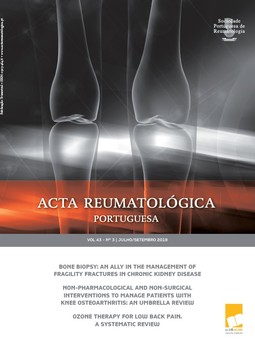Non-pharmacological and non-surgical interventions to manage patients with knee osteoarthritis: An umbrella review
Authors
Ricardo Maia Ferreira; José Alberto Duarte; Rui Soles Gonçalves;
Objective – Update the last known umbrella review and summarize the available high-quality evidence from systematic reviews on the effectiveness of non-pharmacological and non-surgical interventions for patients with knee OA.
Methods – The systematic reviews were identified thought electronic databases such as, MEDLINE, Embase, Physiotherapy Evidence Database (PEDro), The Cochrane Library, SciELo, Science Direct, Google Scholar, Research Gate and B-ON. The studies selection respected the following terms to guide the search strategy using the P (humans with knee osteoarthritis) I (non-pharmacological and non-surgical treatments) C (pharmacological, surgical, placebo, no intervention, or other non-pharmacological/ non-surgical conservative treatments) O (pain, functional status, stiffness, inflammation, quality of life and patient global assessment) model.
Results – Following the PRISMA statement, 41 systematic reviews were found on the electronic databases that could be included in the umbrella review. After methodical analysis (R-AMSTAR), only 35 had sufficient quality to be included. There is gold evidence that Standard Exercise programs can reduce pain and improve physical function in patients with knee OA. Additionally, there is silver evidence for Acupuncture, Aquatic Exercise, Electroacupuncture, Interferential Current, Kinesio Taping, Manual Therapy, Moxibustion, Pulsed Electromagnetic Fields, Tai Chi, Ultrasound, Yoga, and Whole-Body Vibration. For other interventions, the quality of evidence is low or did not show sufficient efficacy from the systematic reviews to support their use.
Conclusion – Comparing to last known umbrella review, similar results were achieved on Acupuncture and Exercise interventions to improve the patients’ pain, stiffness, function and quality of life, but it was found different results regarding the utilization of Transcutaneous Electrical Nerve Stimulation and Low-Level Laser Therapy as they do not improved the patients’ pain and physical function.
Ricardo Maia Ferreira
Institute Polytechnic of Maia
José Alberto Duarte
University of Porto
Rui Soles Gonçalves
Polytechnic Institute of Coimbra
Institute Polytechnic of Maia
José Alberto Duarte
University of Porto
Rui Soles Gonçalves
Polytechnic Institute of Coimbra





